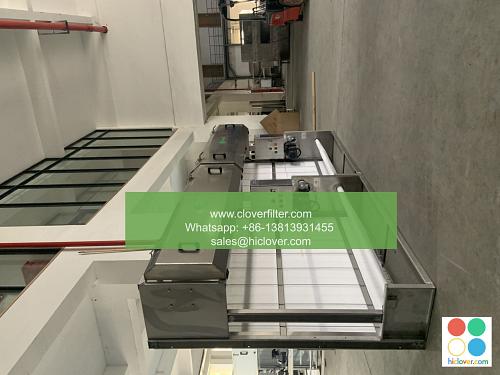Air Filters: A Crucial Tool in Reducing Allergies and Asthma

Air filters have become an essential tool in maintaining good indoor air quality, particularly for individuals suffering from allergies and asthma. The use of high-efficiency particulate air (HEPA) filters and activated carbon filters can significantly reduce the presence of airborne allergens and irritants, creating a healthier environment for those affected by respiratory issues.
##
Understanding the Importance of Air Filtration
Air pollution is a major contributor to the development and exacerbation of allergies and asthma. Indoor air can be up to five times more polluted than outdoor air, with common allergens such as dust mites, pet dander, and mold spores being present in many homes. The use of air filters can help to remove these pollutants from the air, reducing the risk of allergic reactions and asthma attacks.
##
Types of Air Filters and Their Applications
There are several types of air filters available, each with its own unique characteristics and applications. Some of the most common types of air filters include:
* HEPA filters: These filters are designed to capture 99.97% of particles as small as 0.3 microns, making them effective against dust mites, pet dander, and other common allergens.
* Activated carbon filters: These filters are designed to capture gases and odors, making them effective against volatile organic compounds (VOCs) and other pollutants.
* Ultraviolet (UV) light filters: These filters use UV light to kill bacteria and viruses, making them effective against airborne pathogens.
Air filters have a wide range of applications, including:
* Residential air filtration: Air filters can be used in homes to reduce the presence of allergens and irritants, creating a healthier environment for individuals with allergies and asthma.
* Commercial air filtration: Air filters can be used in offices, schools, and other commercial buildings to improve indoor air quality and reduce the risk of allergic reactions and asthma attacks.
* Industrial air filtration: Air filters can be used in industrial settings to remove pollutants and particulate matter from the air, creating a safer working environment for employees.
##
Benefits of Using Air Filters
The use of air filters can have numerous benefits, including:
* Reduced allergy and asthma symptoms: By removing airborne allergens and irritants, air filters can help to reduce the risk of allergic reactions and asthma attacks.
* Improved indoor air quality: Air filters can help to remove pollutants and particulate matter from the air, creating a healthier environment for everyone.
* Increased energy efficiency: Some air filters can help to reduce the amount of energy required to heat and cool a building, making them a cost-effective solution for homeowners and businesses.
##
Conclusion
Air filters are a crucial tool in reducing allergies and asthma. By removing airborne allergens and irritants, air filters can help to create a healthier environment for individuals with respiratory issues. With a wide range of applications and benefits, air filters are an essential component of any indoor air quality management strategy. Whether you’re a homeowner, business owner, or facility manager, investing in a high-quality air filter can have a significant impact on the health and well-being of occupants. Prompt

